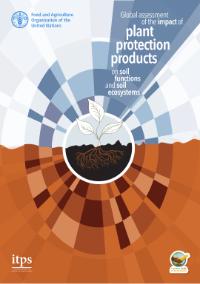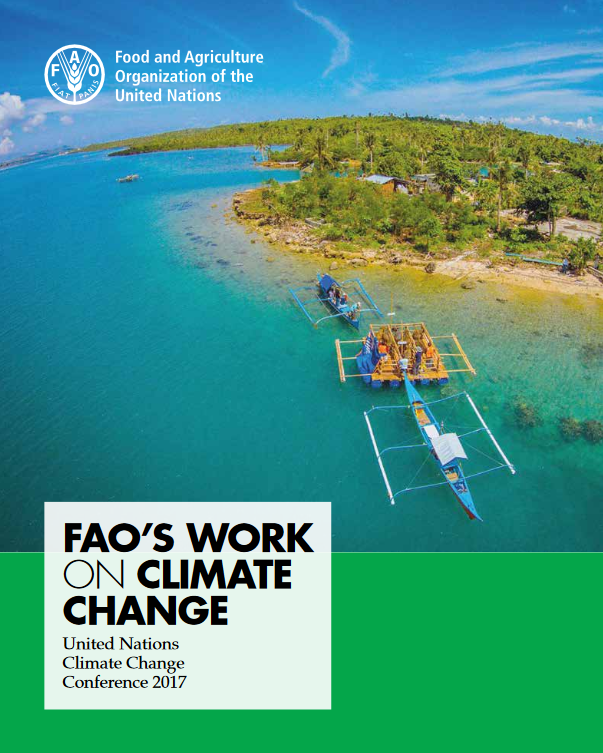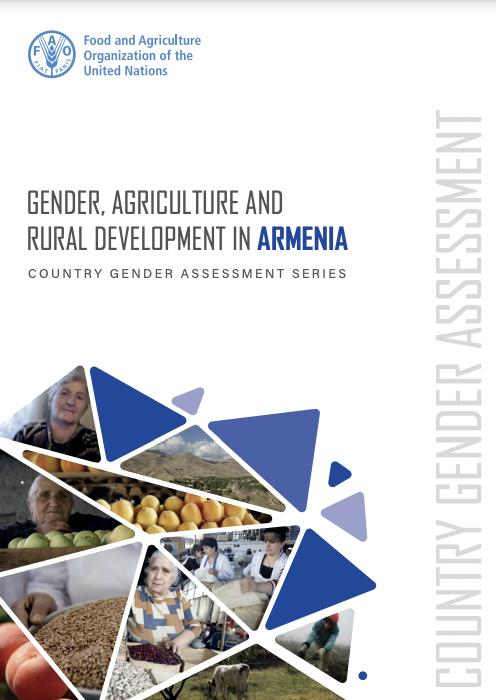Focal point
Location
The Food and Agriculture Organization of the United Nations leads international efforts to defeat hunger. Serving both developed and developing countries, FAO acts as a neutral forum where all nations meet as equals to negotiate agreements and debate policy. FAO is also a source of knowledge and information. We help developing countries and countries in transition modernize and improve agriculture, forestry and fisheries practices and ensure good nutrition for all. Since our founding in 1945, we have focused special attention on developing rural areas, home to 70 percent of the world's poor and hungry people.
Members:
Resources
Displaying 616 - 620 of 5074Global assessment of the impact of plant protection products on soil functions and soil ecosystems
This assessment focuses on three main services that plant protection impacts on soil can significantly affect: provisioning services for food, fibre, and fuel supply and regulating services for water quality and erosion. The Global Soil Partnership (GSP) at its 2016 plenary session requested that the Intergovernmental Technical Panel on Soils (ITPS) complete “an assessment at global level of the impact of Plant Protection Products on soil functions and ecosystems”. It is an activity under the strategic objective SO2 and indirectly contributing to all FAO strategic objectives.
Mujeres de algodón. Roles de género y participación en las cadenas de valor en Argentina, Bolivia, Colombia, Paraguay y Perú
A nivel mundial, en los últimos años se lograron avances importantes en relación a la igualdad de género en el marco de los Objetivos de Desarrollo del Milenio (ODM). Sin embargo, las mujeres y las niñas siguen sufriendo discriminación y violencia en todos los lugares del mundo. Por ello, para alcanzar un mundo sostenible e igualitario es necesario cerrar las brechas de género.
FAO's Work on Climate Change
Shortly after releasing a report on its climate change strategy in July 2017, the Food and Agriculture Organization (FAO) of the United Nations presents a new report at COP23 - this time focusing on the organization's concrete work on climate change.
Gender, agriculture and rural development in Armenia
Gender equality is key to eliminating poverty and hunger, and this has been demonstrated by FAO throughout its research across the world. FAO is committed to interventions that seek to reduce gender inequalities and this report has been produced as part of its eff orts to generate evidence and knowledge in compliance with FAO’s Policy on Gender Equality (FAO, 2013a). It is only through closing the gender gap that strategies on sustainable agriculture and rural development can reach their full potential.
Land Degradation Assessment in Small Island Developing States (SIDS)
Sustainable management of the natural resource base is a fundamental issue to support global environmental benefits provided by ecosystem services, and to ensure agricultural production and ultimately food security and livelihoods. Assessing Land degradation is a major component of effective sustainable land management particularly in Small Island Developing States (SIDS).










